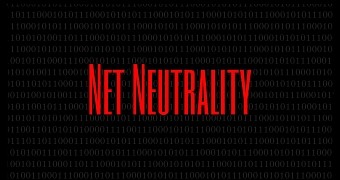The FCC announced its plans to roll back net neutrality protections, as expected. This has been kind of imminent over the past few months, since it was announced that Ajit Pai would take on the leadership of the Federal Communications Commission, a known opposer of Tom Wheeler's net neutrality rules.
In the plan the FCC published, several steps are exposed regarding the commission's efforts to break apart everything that has protected American Internet users in the past few years. The announcement comes just weeks after the same Internet users were deprived of another protection the former administration implemented and that was supposed to take effect this year, which would have prohibited ISPs from selling off people's private data, including browsing history, without their consent.
What's the plan?
The main part of this plan is to move Internet companies away from the Title II category, bringing them back to Title I. This means that instead of a utility, Internet connections will be seen as "information services." This would automatically translate into fewer regulations for the industry which would spark new investments, says Pai. Pai is of the opinion that moving Internet provider companies to Title II was not necessary and they were just looking for a problem to fix when there was none. Of course, that's not exactly correct since there were countless instances of Internet speed throttling.
A second major element of the new proposal is rescinding the "Internet conduct standard." This is the rule that allows the FCC to investigate the "zero-rating" plans which exclude certain services from monthly data caps. Pai had previously expressed his intent to end those investigations, and we suppose that taking down the rule that led to them is the way to achieve this.
Seeking comments
The FCC will also be seeking comments on ways to deal with the bright-line rules adopted as part of the net neutrality protections back in 2015. These are those main regulations that form the base of what net neutrality means as a concept. These state that broadband providers may not block access to legal content, apps, services or non-harmful devices and that they are not allowed to throttle lawful Internet traffic. Furthermore, there can be no paid prioritization of some Internet traffic over other traffic. In short, companies can't create fast lanes for the services they like only to throttle those they don't, mainly competitors.
One big change will be the fact that the FCC will no longer be in charge of how ISPs handle themselves and any privacy complaints that may be against them. Instead, the FTC will once more take over imposing regulations.

 14 DAY TRIAL //
14 DAY TRIAL //